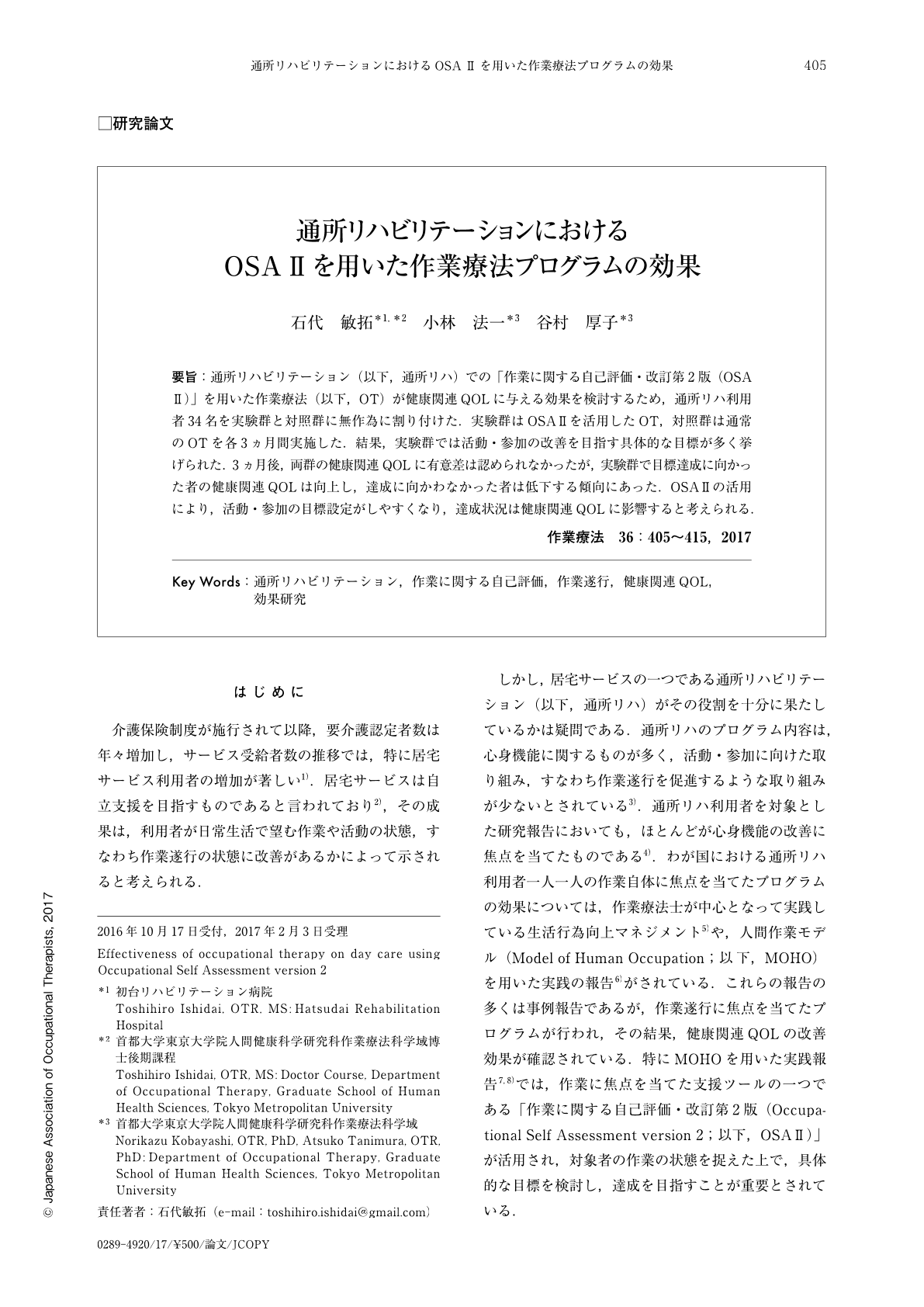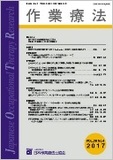Japanese
English
- 販売していません
- Abstract 文献概要
- 1ページ目 Look Inside
- 参考文献 Reference
- サイト内被引用 Cited by
要旨:通所リハビリテーション(以下,通所リハ)での「作業に関する自己評価・改訂第2版(OSAⅡ)」を用いた作業療法(以下,OT)が健康関連QOLに与える効果を検討するため,通所リハ利用者34名を実験群と対照群に無作為に割り付けた.実験群はOSAⅡを活用したOT,対照群は通常のOTを各3ヵ月間実施した.結果,実験群では活動・参加の改善を目指す具体的な目標が多く挙げられた.3ヵ月後,両群の健康関連QOLに有意差は認められなかったが,実験群で目標達成に向かった者の健康関連QOLは向上し,達成に向かわなかった者は低下する傾向にあった.OSAⅡの活用により,活動・参加の目標設定がしやすくなり,達成状況は健康関連QOLに影響すると考えられる.
The purpose of this study was to investigate the effect of the Occupational Self Assessment version 2 (OSAⅡ) on day care clients' health-related quality of life. The participants included 34 in-home clients who required long-term care. First, they were randomly assigned to either an experimental group that received a 3-month program with the OSAⅡ or a control group that received a regular 3-month program at the hospital. Second, the experimental group was classified into two groups: those who could do their occupation and those who could not. The health-related quality of life of each group was compared using the Medical Outcomes Study 36-Item Short-Form Health Survey version 2 (SF-36v2). In the experimental group, most goals were set to promote the clients' activities and participation by the use of the OSAⅡ. There were no significant differences in SF-36v2 between the experimental and control groups. However, in the experimental group, the scores for the general health perceptions of the SF-36v2 in the group that succeeded in their doing occupations were significantly greater than those before the program. In those that did not result in occupations, the scores for social functioning of the SF-36v2 were significantly lower than those before the program. Our findings suggest that using the OSAⅡ in outpatient rehabilitation programs can make it easier to set a goal to promote clients' activities and participation, and have an effect on the health-related quality of life of clients who can do their occupations.

Copyright © 2017, Japanese Association of Occupational Therapists. All rights reserved.


